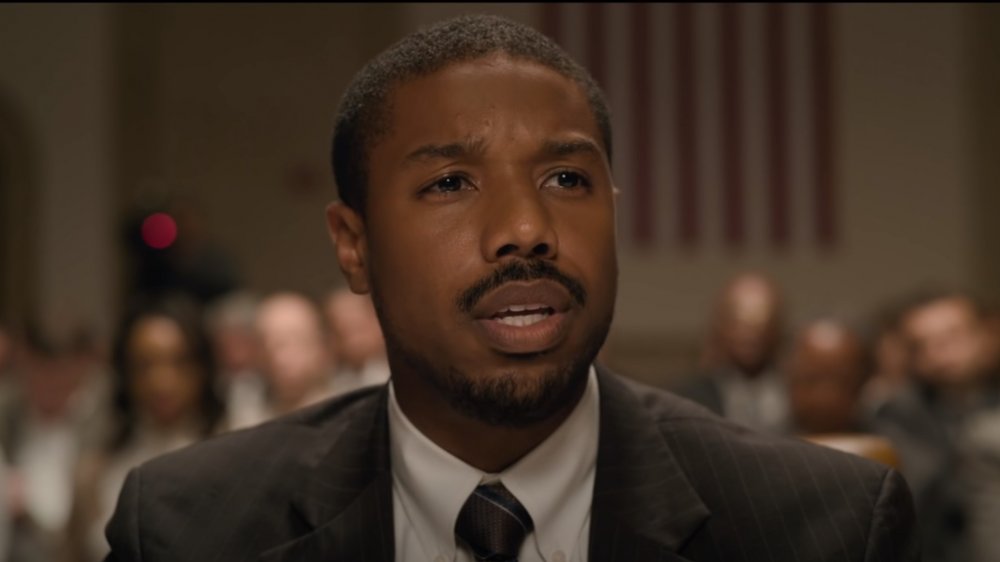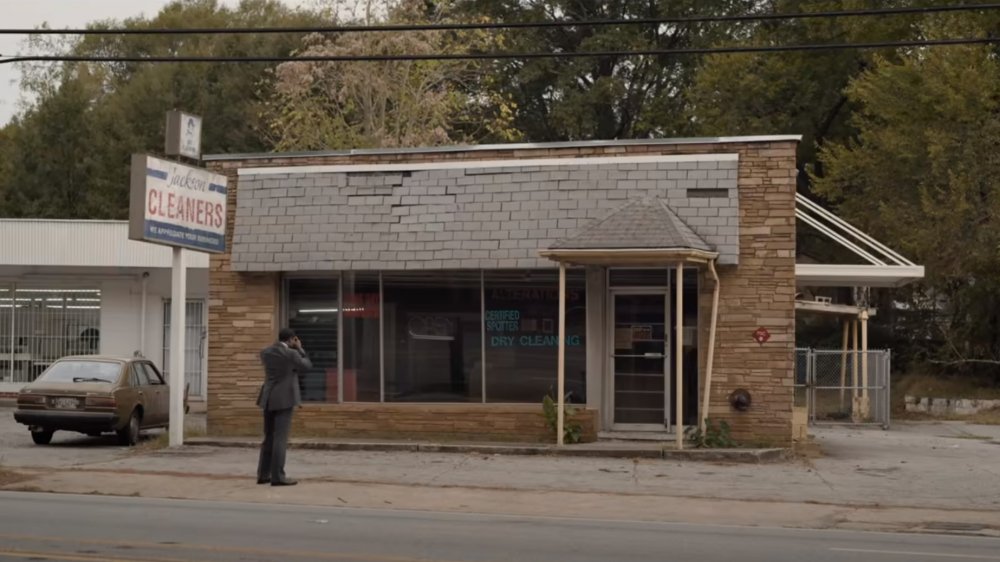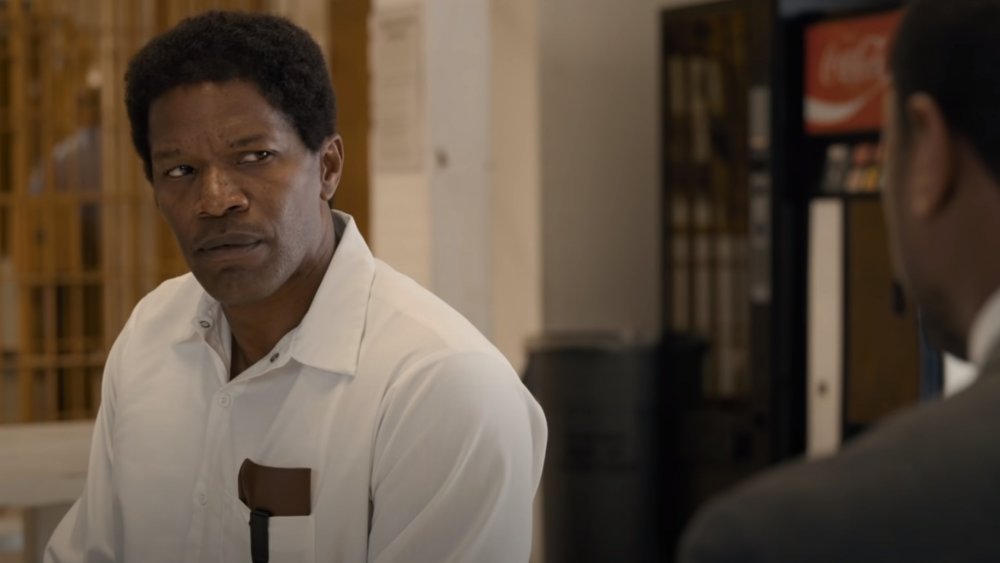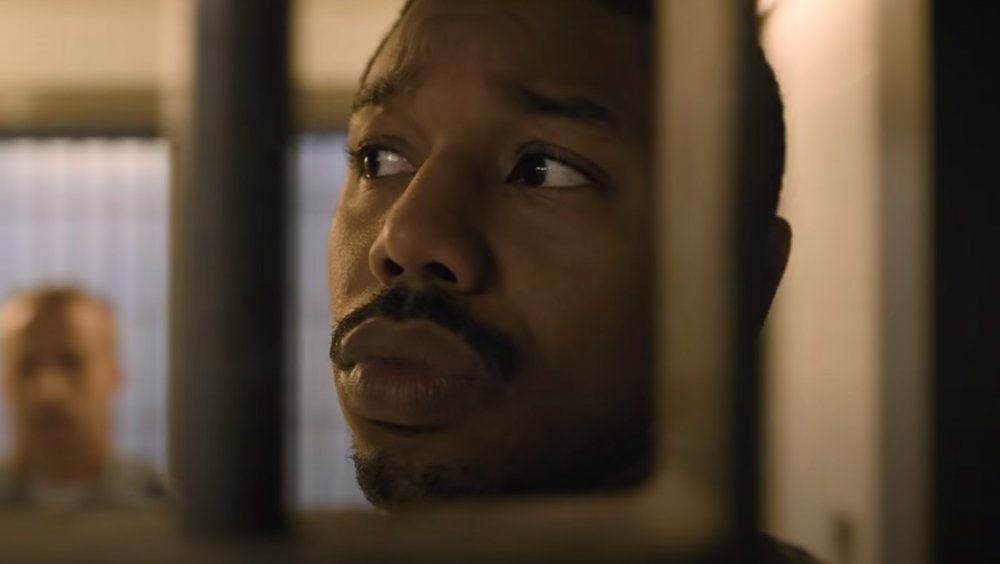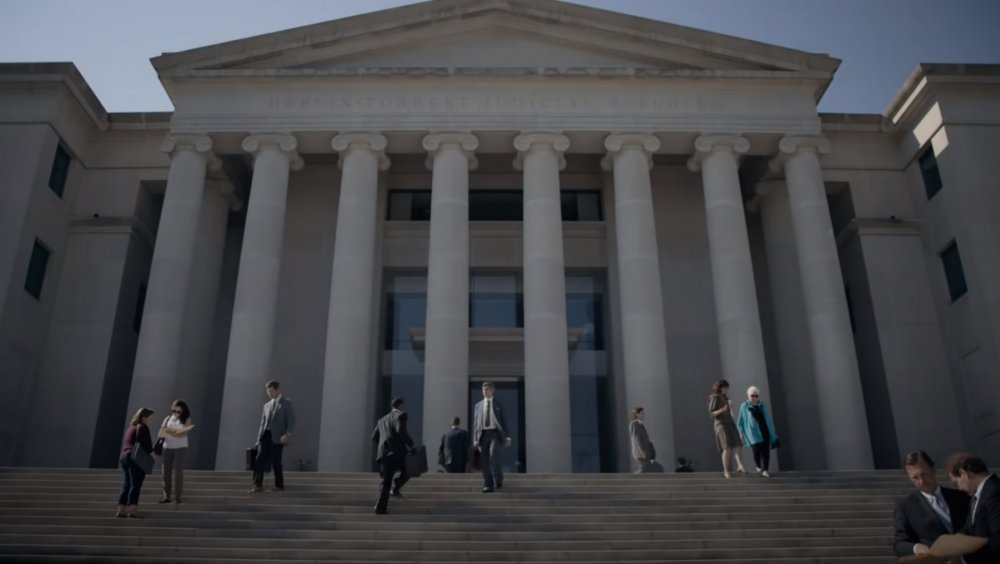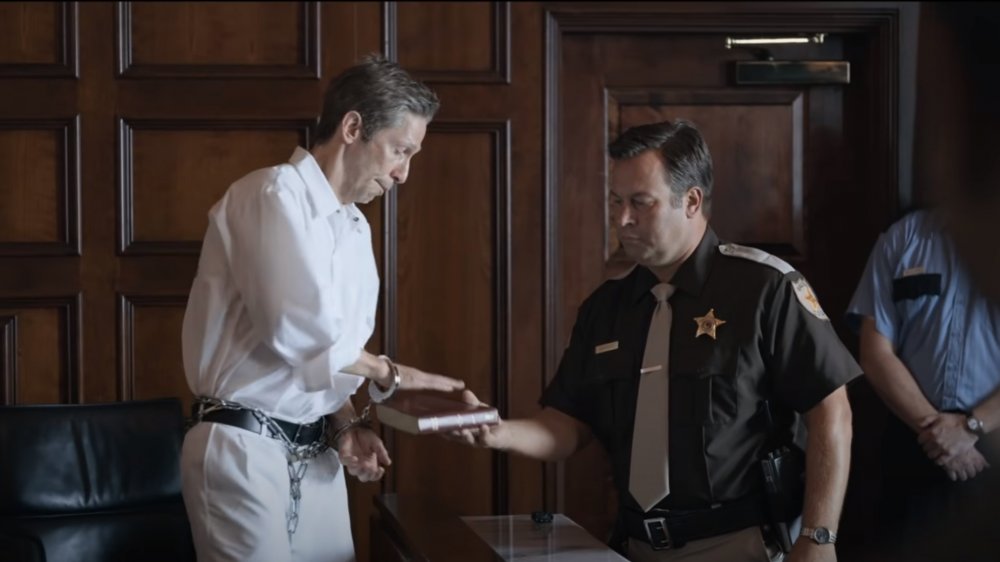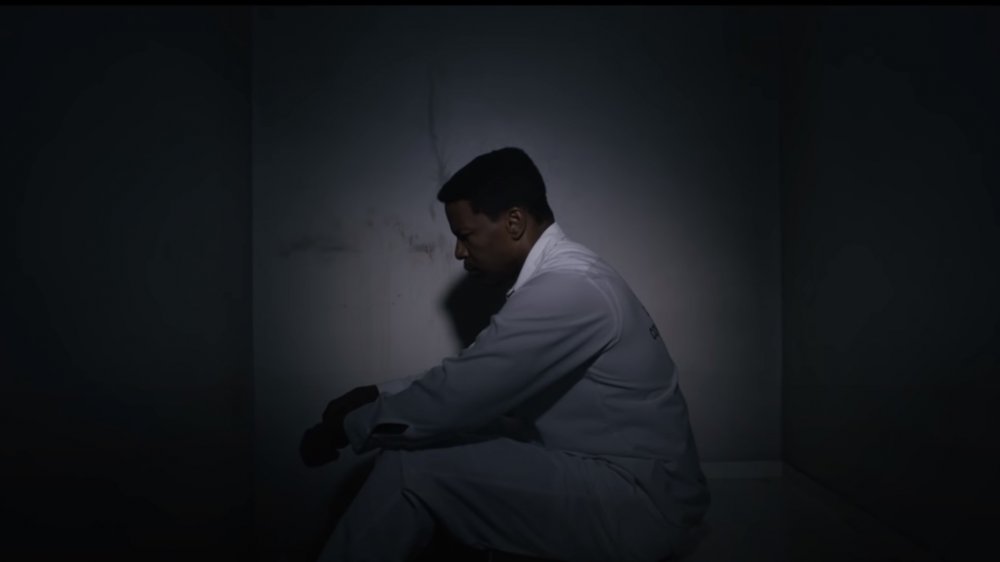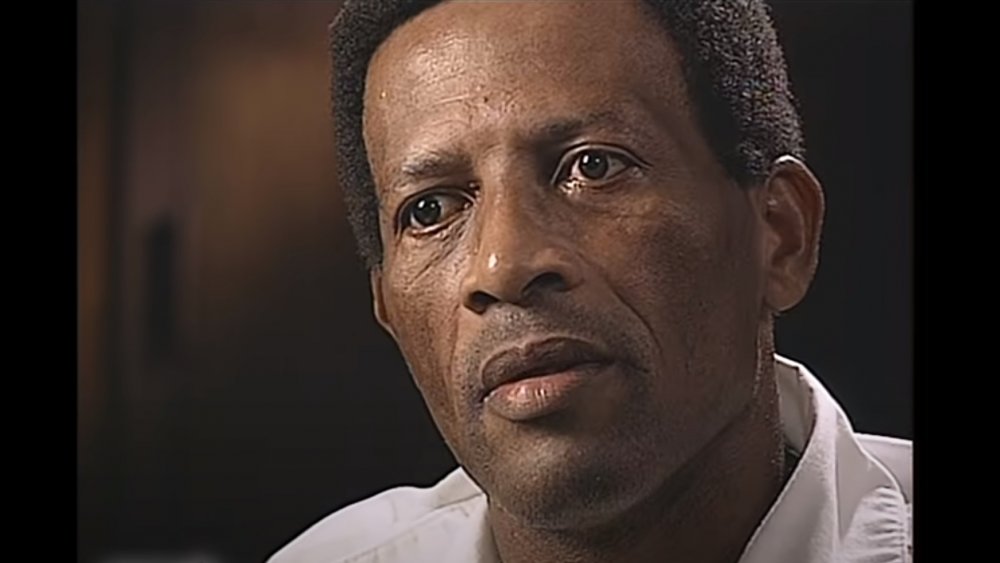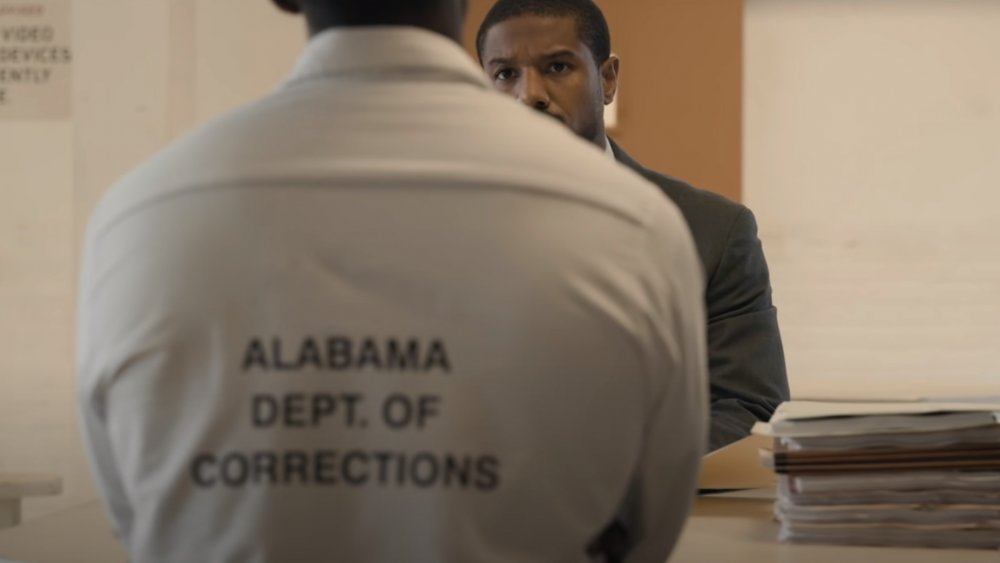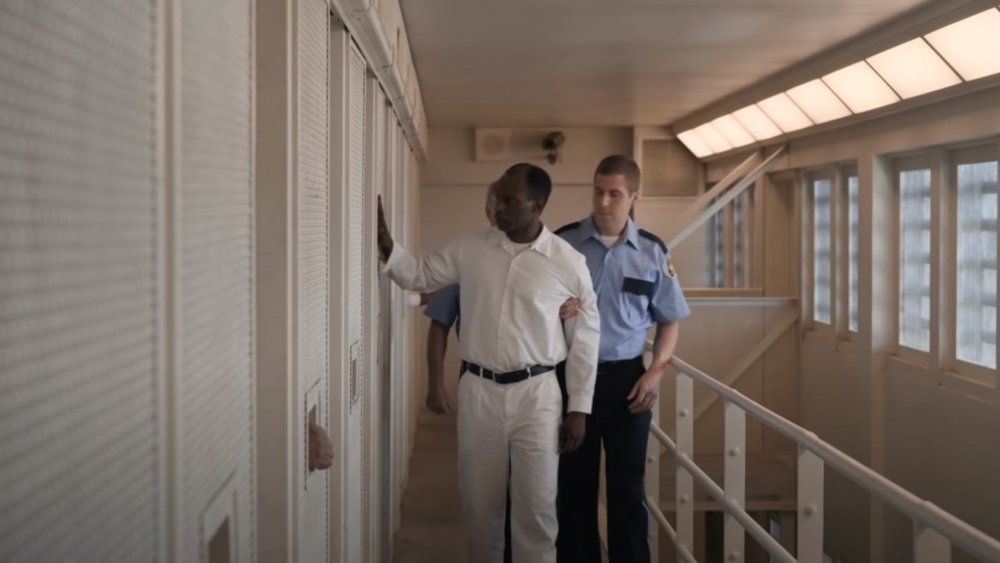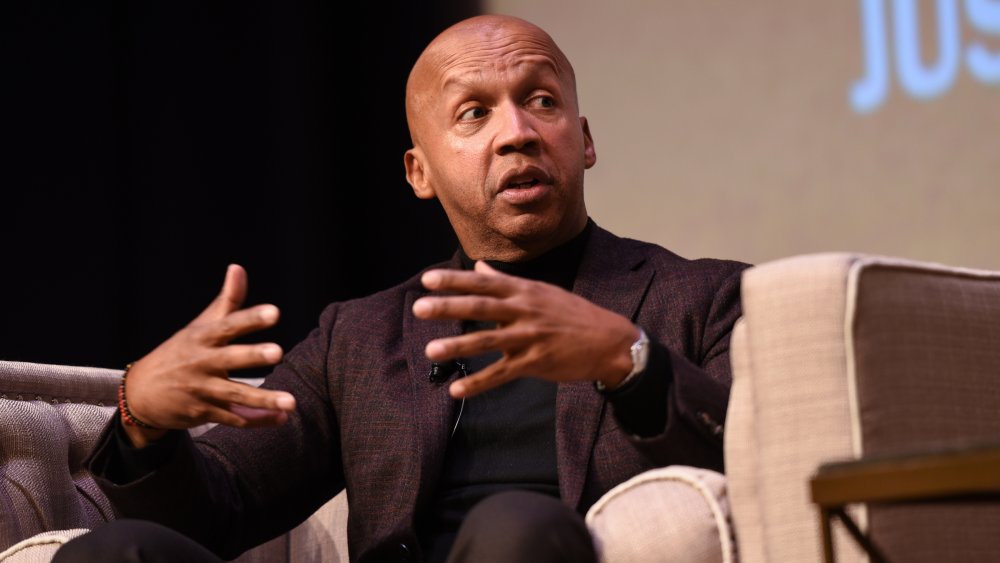The True Story That Inspired Just Mercy
In June of 2020, Warner Bros. announced they were making the 2019 film Just Mercy available as a free rental on various digital platforms. When it was released originally, The Guardian called it a film with "quiet power," and referenced a 4-year-old interview with Bryan Stevenson, the attorney whose memoirs — of the same name — were the basis for the movie.
Stevenson, they say, could be considered "America's Mandela," a "tireless advocate" dedicated to exposing racial bias within the US justice and penal system. After graduating from Harvard Law School, Stevenson looked to his childhood — growing up in segregated Delaware — for his life's calling.
And he absolutely found it, establishing the Equal Justice Initiative in Montgomery, Alabama, and going on to defend many of Alabama's death row inmates, all pro bono. Along the way, he took up the case of Walter McMillian, a man wrongly convicted of murder who spent six years on death row before, well... that's the story at the heart of Just Mercy, and rather than give away the ending, let's talk about what happened in the real-life case that inspired this tale of racial inequality, bias, and a shocking corruption of justice.
The murder of Ronda Morrison
It all started on November 1, 1986. That's when an 18-year-old junior college student named Ronda Renee Morrison went to work at her part-time job at a local Monroeville dry cleaner, just like she undoubtedly had countless times before. That day, though, someone carrying a small-caliber pistol walked in, shot her, took $50 out of the cash register, and left.
Within days, The Montgomery Advertiser was reporting that dozens had been questioned in the murder, but with no concrete leads, there was a $16,000 reward being offered for help in finding her killer. Still, in spite of the reward, months went by. Eight months after Morrison's murder, police arrested a man named Ralph Myers in connection with another killing in a nearby county. According to The New York Times, a week into his arrest, Myers gave police something shocking: Morrison's killer, he said, was a man named Walter McMillian.
McMillian was no one's chief suspect — not until Myers pointed the finger. He was an ordinary person living an ordinary life... almost. According to the Equal Justice Initiative, he did have one massive mark on his record: he'd had an affair with a married, white woman, and when she and her husband went through a very public and very messy divorce, McMillian was in the spotlight. It was just a frighteningly short hop, skip, and a jump to make the leap to the conclusion that he was someone capable of cold-blooded murder.
How the arrest went down
Next, Walter McMillian was arrested by Sheriff Thomas Tate. According to the court documents, the arrest came with a whole slew of racial slurs that are completely unrepeatable, along with a lot of shady maneuvering.
All the sheriff had on McMillian was the testimony of someone already arrested in connection with a killing, and he couldn't make an arrest just based on that. So instead, Tate first searched McMillian's truck, looking for drugs... which he didn't find. Then, Tate claimed he was arresting McMillian for sodomy, a charge that he needed to explain at the arrest.
Shady? For sure. Even worse are the ways Tate was seen going out of his way to skew things in his favor. How? Well, for starters, Slate says he made sure to arrest McMillian while he was driving his truck — and that's surprisingly important. Tate drove McMillian's truck to the police station himself... guaranteeing the right people saw it. And those people — those were the ones that positively identified that particular truck as being seen outside of the dry cleaners at the time Morrison was killed.
A judge's warning
At the time of Walter McMillian's arrest, Bryan Stevenson was working at the Southern Prisoners Defense Committee in Atlanta, Georgia — and before he even met with McMillian, he got another phone call. It was from Judge Robert E. Lee Key, and yes, that's absolutely his name.
Key warned him not to take the McMillian case, and he had a laundry list of reasons why. McMillian was, he claimed, not only under arrest for murder and sodomy, but he was also a major drug dealer, had a ton of money buried all over the county, and was associated with the Dixie Mafia. (The Dixie Mafia was, says the FBI, not really a mafia in the typical sense of the word, but was a loosely associated group of criminals involved in drugs, gambling, thefts, and a massive corruption scandal that sprawled across the Gulf Coast in the early 1980s.)
Alabama Public Radio says that Stevenson took the case anyway, and when he drove to meet his new client, he didn't go to a holding facility at the Monroe County jail. He went right to Holman Prison, where Walter McMillian was already being held... on death row. The trial hadn't even started yet, and still, he was already spending his days in a 5x8 cell, watching other prisoners being taken away... to never come back.
The death row decision
Judge Key had been the local circuit court judge for the previous two decades, says The New York Times, but they don't say whether or not anyone protested when he decided to move the trial from Monroe County — which had a population that was 40 percent black — to Baldwin County, which had a population that was 13 percent black.
The trial lasted just a day and a half, and rested entirely on three witnesses. One was Ralph Myers, who claimed Walter McMillian had asked him to give him a ride to the dry cleaning store, where he (Myers) had supposedly witnessed the killing. Another testified that he had seen McMillian's truck near the store, and ... wait do those two things contradict each other? Devil's in the details, right? The third witness also implicated that McMillian was the killer. As for the defense, they had a much, much better case. A dozen witnesses testified that McMillian had been at a fish fry at the time of the killing. There was also no physical evidence presented but still, the jury found him guilty.
While the sentence handed down from the jury included life in jail, that's when Judge Key stepped in. Describing the "vicious and brutal killing of a young lady in the first full flower of adulthood," Key turned that life sentence into a death sentence, and Walter McMillian was sent to death row.
Witnesses were coerced to testify... and it was all recorded
This is just one of those cases that keeps getting more and more insane, and when Stevenson spoke to NPR about the case, he talked about what he uncovered about those three eye-witness testimonies.
The police absolutely coerced the witnesses into testifying, and we know for a super-strange reason: they recorded the conversations. Bryan Stevenson says: "So you hear this tape where the witness is saying, 'You want me to frame an innocent man for murder? I don't feel right about that.' The police officer is saying, 'Well, if you don't do it, we're going to put you on death row, too.'"
And they absolutely did, moving that witness to death row until he agreed to give the false testimony that they wanted. According to the AP, it was Ralph Myers who dodged a death row sentence by testifying, so what about the other two "witnesses?" They split $7,000 in reward money, and if that sounds like a lot, it is — and adjusted for inflation, that's around $16,000 in today's money. In spite of that discovery, Stevenson says that the first few judges they approached still refused to grant Walter McMillian relief. He says, "It took us six years to get a court to ultimately overturn the conviction. I think it speaks to this resistance we have in this country to confronting our errors, to confronting our mistakes."
The evidence that surfaced later
As Bryan Stevenson continued to investigate, he found there was more shadiness that had gone on at the original trial — shadiness that even Ralph Myers hadn't been too keen on being involved with. According to the AP, Myers freely admitted that he had been pressured into giving his accusation, and Stevenson found that he'd been pretty vocal about that from the beginning. Among the evidence he used to get the conviction overturned were statements Myers had given at the time of the first trial. He had been talking to a handful of doctors at a forensic hospital, and said that law enforcement was pressuring him to lie on the stand.
There were also his original statements, where he said he didn't know anything about Walter McMillian, and then? Stevenson found that McMillian's truck — the one Sheriff Tate had driven in front of witnesses — didn't even match the truck they swore they'd seen at the crime scene: it wasn't a "low-rider" truck at all.
That evidence had been in the prosecution's possession at the time of the original trial and — not surprisingly — hadn't been turned over to the defense.
Walter McMillian: post-prison
By the time the Alabama Court of Criminal Appeals finally overturned Walter McMillian's conviction, he had been sitting on death row for six years. When he walked out of court a free man, the AP quoted him as saying, "I guess they'll get what's coming to them down the road. I'm innocent. God knows, I'm innocent."
In the following years, McMillian joined the campaign to help other death row inmates facing the same struggles he had. In 1993, he appeared before the US Senate Judiciary Committee, and he had this to say (via Refinery 29): "I am excited and happier than I can describe to be free. At times, I feel like flying. However, I am also deeply troubled by the way the criminal justice system treated me and the difficulty I had in proving my innocence. I am also worried about others. I believe there are other people under sentence of death who, like me, are not guilty."
Walter McMillian died in 2013: he was 71-years-old. Long before that, though, he was diagnosed with early-onset dementia, which NPR says his doctors believed was trauma-induced. In Bryan Stevenson's book (via Slate), he talks about visiting McMillian in a nursing home and having a conversation with him where he likened it to being put back on death row. When Stevenson reminded him that it was a hospital and he could leave, confusion set in. "He was starting to panic, and I wasn't sure what to do. Then he started crying. 'Please get me out of here. Please? There's going to execute me for no good reason, and I don't want to die in no electric chair.' He was crying now with a forcefulness that alarmed me."
What really happened to the others
So, what happened to the other key players in the case? According to the AP, the witnesses that had lied on the stand couldn't be charged with perjury — the statute of limitations had expired.
Thomas Tate, the county sheriff who had arrested Walter McMillian in the first place, remained sheriff until he retired in 2018. According to Slate, the official reason he gave was age... although his retirement came on the heels of another scandal, when it was found that he had taken home a hefty $110,000 — money that had been designated for feeding prison inmates. An old Alabama law gave sheriffs the right to keep any unspent cash, and he said, "It hurts my feelings to be accused of doing something wrong."
In 1999, Judge Key and Theodore Pearson, the DA who prosecuted McMillian, saw the end of another case — one The Guardian called "Death of justice in Alabama." It was suspiciously similar: a black man from Alabama — this time, his name was Brian Baldwin — was accused of killing a white woman. The only evidence was his confession, which he claimed he had only given after multiple beatings and shocks from a cattle-prod (which was confirmed to have been kept at the police station). In spite of no physical evidence and a sworn statement from another man (who was executed in 1994) saying Baldwin was innocent, Key and Pearson oversaw the trial that sent him to the electric chair in 1999.
Key died in 2005.
Rhonda Morrison's actual killer was never brought to justice.
They toned everything down for the movie Just Mercy
Just Mercy is a quiet but powerful telling of Walter McMillian's story, and according to director Destin Daniel Cretton (via Refinery 29), it's not entirely true: "To be honest, we toned it way down from what the reality of what was documented for that arrest was. If we put all the language that was used, it would instantly become an R-rated movie."
According to Slate, the movie also glossed over some of the horrors McMillian saw sitting on death row for six years. They called it "a constant nightmare," and so did McMillian when he talked about the Alabama tradition of banging their cups on the bars when guards came to take an inmate away for his execution. "We were all banging on the bars to protest, to make ourselves feel better, but really, it just made me sick."
And that's hard to capture on the big screen — a movie can only be so long, after all. When Bryan Stevenson talked to NPR, he put it this way: "You can't threaten to kill someone every day, year after year, and not harm them, not traumatize them, not break them in ways that [are] really profound. Yet, when innocent people are released, we just act like they should be grateful that they didn't get executed, and we don't compensate them many times, we don't help them, we question them, we still have doubts about them."
Here's why Bryan Stevenson didn't want to write Just Mercy in the first place
Bryan Stevenson's memoir was a massive hit: it spent 188 weeks on the non-fiction best-seller list, says The New York Times. But it almost didn't happen, as he'd had no intentions of actually writing a book. He hadn't believed it was the best use of his time, and the idea of spreading the message behind his work far and wide? Well, that hadn't been on the table, either.
"For the first 20 years of my career, I sought anonymity because I believed it was the most effective way I could help the people I'm trying to help. We had to be covert, going into prisons and getting people off death row; it was like running the underground railroad. But about 10 years ago, I realized we needed to get outside the courts and start talking about these issues. [...] Until we hold people accountable for so much of this unfairness and unjustness, we're not going to get the kind of change we need."
Stevenson says the response that the book — and the movie — have gotten, well, it's given him hope. And it's come from a very powerful place: he says that he inherited his love of the written word from his mother, who was an avid reader, and his grandmother, who remembered sitting next to her father as he read. And that was a big deal: "My great-grandparents were enslaved in Virginia, and my great-grandfather learned to read because he believed that one day, he would be free."
Bryan Stevenson's other work has changed the US criminal justice system
There's much, much more to Bryan Stevenson's work than just the McMillian case, and it's all pretty amazing stuff. According to NYU (where he's an Aronson Family Professor of Criminal Justice), he started representing death row inmates from the Deep South in 1985, and founded the nonprofit law organization Equal Justice Initiative in 1989. Since then, the EJI has made some landmark advances in leveling the playing field of the justice system.
Two of the biggest came in 2012 and in 2019: first, they were behind a landmark case that banned life-without-parole sentences for minors. Then, in 2019, they went in front of the Supreme Court and won a series of protections for convicted criminals who were diagnosed with dementia.
At the same time, they've helped more than 130 wrongly convicted death row inmates get their sentences reversed, get released from prison, or win relief for their wrongfully issued sentences. Stevenson has also established the Legacy Museum and the National Memorial for Peace and Justice, two cultural sites dedicated to documenting the country's history of slavery, lynching, and segregation, along with the racial biases that continue well into the 21st century.
At the heart of his work is this sentiment (via PSMag): "I think the North won the Civil War, but the South won the narrative war. [...] and that is why I say slavery didn't end in 1865. It evolved. [...] We have to understand enslavement in a new way."
